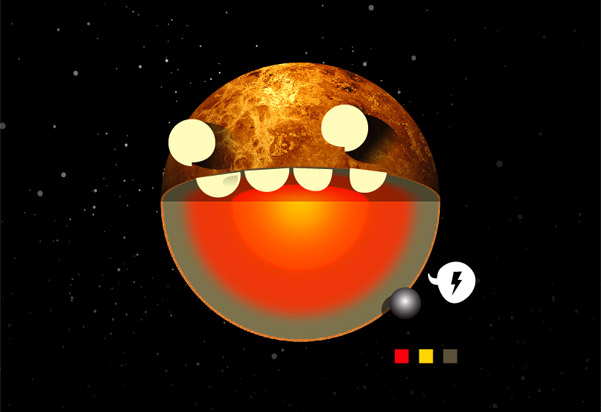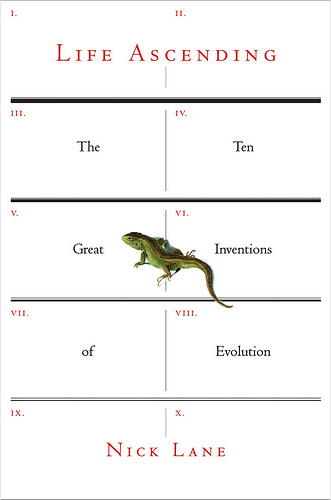
(source image @ nasaimages.org)
Between its 20 different sites, obtuse categories, mediocre search results, and questions of general legality, the search for the right NASA image has always been a frustrating one.
I recently stumbled upon NASAimages.org, which has provided the most user-friendly and comprehensive image collection to date. As a designer, space-afficionado, and general cheapskate, I emailed the site and asked a few questions. To my surprise, Jon Hornstein, the Director of the NASA Project, responded that same day. We’ve exchanged a number of emails since then. As it turns out, NASAimages.org is the end-all source for all media that NASA currently has to offer. It is, in other words, the mother lode.
In the hopes of cutting down on general confusion and frustration the industry over, here’s the meat of our exchange, shoehorned into a friendly Q&A faux-format. Some of this is from Jon, some of it is from various online sources:
The short version: All publicly available NASA images are on nasaimages.org, which is co-operated by the Internet Archive. It is most likely legal for you to use them for any purpose (commercial or otherwise) unless there’s someone famous in the image. Keep reading for more detail.
Q: So what’s the deal with NASAImages.org?
Hornstein:
NASA is an extremely huge and diverse organization. Historically the various NASA Centers have created and managed their media independently on a Center or project basis. There is some overlap in the sites you list but each site was created for a specific purpose and no entity has previously been responsible for creating a central repository for all NASA media.
NASA has 21 major public-facing media-intensive Web sites, and over 2000 sites altogether. The reason NASA entered into a Space Act Agreement with The Internet Archive is to bring together as much NASA media as possible (from existing sites, media repositories that are not online, analog media from the vaults and capturing newly created media) to create a single source for all of NASA’s publicly available media.
The Internet:
NASA Images is a service of Internet Archive ( www.archive.org ), a non-profit library, to offer public access to NASA’s images, videos and audio collections. NASA Images is constantly growing with the addition of current media from NASA as well as newly digitized media from the archives of the NASA Centers. (source)
Q: Is everything on here in the public domain? Can I use this on commercial work?
Hornstein:
All of the media produced by NASA is public domain, meaning that anyone can use it any way (as long as they obey restrictions of publicity and privacy).
The Internet:
As a government entity, NASA does not “license” the use of NASA materials or sign license agreements. The Agency generally has no objection to the reproduction and use of these materials (audio transmissions and recordings; video transmissions and recording; or still and motion picture photography), subject to the following conditions:
- NASA material may not be used to state or imply the endorsement by NASA or by any NASA employee of a commercial product, service, or activity, or used in any manner that might mislead.
- NASA should be acknowledged as the source of the material.
- It is unlawful to falsely claim copyright or other rights in NASA material.
- NASA shall in no way be liable for any costs, expenses, claims, or demands arising out of the use of NASA material by a recipient or a recipient’s distributees.
- NASA does not indemnify nor hold harmless users of NASA material, nor release such users from copyright infringement, nor grant exclusive use rights with respect to NASA material.
- NASA material is not protected by copyright unless noted. If copyrighted, permission should be obtained from the copyright owner prior to use. If not copyrighted, NASA material may be reproduced and distributed without further permission from NASA.
- If a recognizable person, or talent (e.g., an astronaut or a noted personality engaged to narrate a film) appears in NASA material, use for commercial purposes may infringe a right of privacy or publicity. Therefore, permission should be obtained from the recognizable person or talent. If the proposed use of the NASA material could be viewed as a commercial exploitation of that person. However, if the intended use of NASA material is primarily for communicative purposes, i.e., books, newspapers, and magazines reporting facts of historical significance (constitutionally protected media uses), then such uses will generally be considered not to infringe such personal rights.
- Some NASA audiovisual material may incorporate music or footage, which is copyrighted and licensed for the particular NASA work. Any editing or otherwise altering of the work may not be covered under the original license, and therefore would require permission of the copyright owner.
- NASA audiovisual material may include visible NASA identifiers (e.g., the name of the vehicle and the NASA Insignia or Logotype in photographs or film footage of Space Shuttle vehicles). Use of such materials is generally non-objectionable, provided the NASA identifiers appear in their factual context. (Source)
Q: I’ve noticed that NASAImages doesn’t always offer the highest resolution version of a specific image. What’s the best way to make sure I’m getting the highest quality image available?
Hornstein:
[We] have a hi-res version of most, but not all of the images. If the NASA site we got it from had a hi-res, we have it but many sites only had low res. Currently, even if we have a hi-res it’s not downloadable directly from our site but will be sometime within the next few months. For now though, if you find an image you want a hi-res of, in the Details view on the left-hand side is a field called “Original URL.” Clicking on that link takes you to the original NASA page where we acquired the image from. If a hi-res exists at all, it will be available there. Bandwidth and storage are not issues for us. It’s a purely a limitation in the software we use to serve up nasaimages.org and we are working on eliminating that limitation.
Q: In the past, I’ve searched for NASA images on Corbis.com or other similar stock photo resources, assuming that they had access to some images that the rest of us just couldn’t get ahold of. I’ve only recently realized that this is not the case, (for example, compare this photo of spiral galaxy M101 to the same image found on Corbis). How is it that stock houses can sell work that’s public domain? Is there any reason I should be using their services?
Hornstein:
Anyone can resell public domain images as long as they obey restrictions of publicity and privacy.
So the media these stock houses offers that comes from NASA is at least theoretically available for free directly from NASA and from nasaimages.org. People may pay to license NASA images from Corbis because 1) they make it easier to find; 2) they will warranty the availability of the image for use (relieving the buyer of any potential liability for using an image that might have legal restrictions); or 3) simply because people are unaware that media from NASA is pubic domain and available from a variety of free sources.
Q: Is there any reason that I should be visiting the various other sites if I’m looking for images, or does NASAImages have the full collection? If not, when does it expect to?
Hornstein: nasaimages.org launched last August with the contents of all 21 sites included. Since then, we’ve been adding new content not on those sites and in many cases, not on any other site.
Thanks a ton Jon!




















